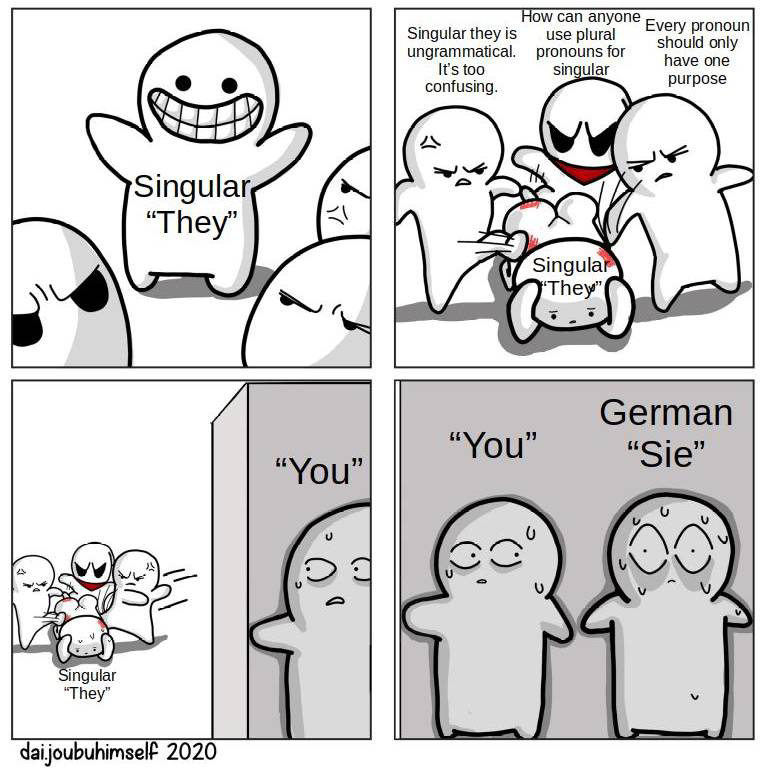I have normally used "they, their and them" when referring to a singular person for about twenty years because I thought that "he/she" and "his/hers" looked ridiculous in emails.
For example; "Next time the engineer feels like he/she needs to overhaul the code..." versus "Next time the engineer feels like they need to overhaul the code...". Clean and simple.
Example of current use:
Bob - "Hey Jo, Frank thinks we should tweak widget X."
Me - "Yeah well, they don't know what the fuck they're talking about."
I don't think that sounds weird.

